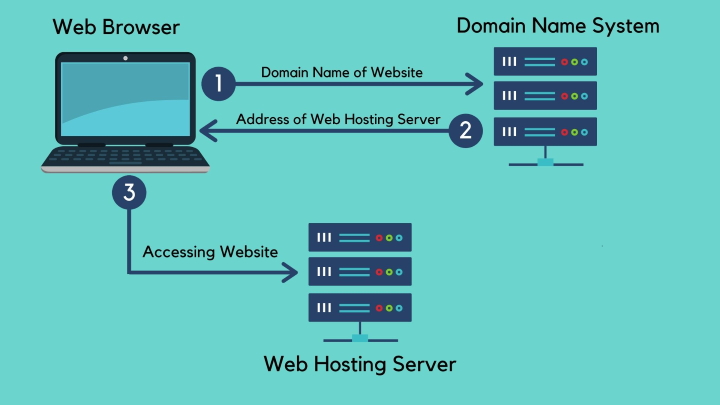A domain is the website address, which people type into their browser to visit your site. Behind every domain name is a web host server that stores your site files. Many web hosts offer domain registration as a bundled service with their hosting packages. This makes it easier to manage all aspects of your online presence with one company.
Domain & Web Hosting
Availability
Domain names and web hosting are two separate services, but they work together to create websites on the Internet. The domain name acts like the address of your website, while the web hosting provides space for your site files to be stored. Most web hosting providers also offer software for you to build and manage your site. You can register a domain name with one company and host your website with another, but you should be aware of the extra fees involved when doing this.

Depending on the domain registrar, you may also be offered additional services, such as email hosting, website building software, and other marketing tools. You can use these tools to promote your business, but you should always review their terms of service and pricing before purchasing them. If you do not, your domain may expire and be available to others.
It is possible to buy a domain and web hosting from different companies, but many people choose to purchase both from the same provider for ease of management. You should be aware, however, that if you buy a domain name from a registrar and a hosting account from a different company, you will need to point the domain to your server through DNS records. This process is simple and usually does not require any technical knowledge.
Cost
Domain registration is the first step in creating a website. A domain name is the address that leads users to your site and tells them what your website is about. This information is also used to identify who owns the website. Depending on your business needs, you may want to register multiple domain names to ensure that you have the best possible coverage.
Web hosting is the’space’ that houses your website files on a server. Without this service, websites would not be visible online. This is why it is essential to choose a web host that offers reliable and fast service. The best hosting providers provide 24/7 support for their customers, which can help you resolve any issues quickly.
It is also important to consider the cost of your domain registration and web hosting. Many companies offer both services together, which can save you time and money. However, it is not necessary to buy a domain and hosting from the same company. In fact, it may be better to purchase your domain from a separate company and then link it with your hosting service later on.
Another thing to consider is whether the registrar offers WHOIS protection. This service keeps your contact information private, and can be especially useful for small businesses that want to avoid being listed in spam databases.
Security
Domains are the unique names that identify websites on the internet. When a user types a domain name into their browser, the website’s IP address is then used to locate the corresponding web server on which the website files are stored. This allows the website to be displayed on the user’s device. There are a number of security measures that can be taken to protect your domain. For example, you can add two-factor authentication to your account to help prevent unauthorized access. It is also recommended that you use a strong password for your domain registrar account. This will ensure that only you can make changes to your account and domain settings. You should also make sure that any third parties that you work with on your website or online business do not have access to your account login information. This includes web designers and hosting providers.
Another measure you can take to protect your domain is to ask your registrar to put a transfer lock on your domain. This is not a fail-safe, but it will help to prevent unauthorized transfers or hijacking of your domain name. Some registrars require two-factor authentication for this, while others just need authorization from the registrant.
Registrants should always pay attention to emails from their registrar or internet service provider regarding changes to their domain registration account details. These may be phishing attempts by hackers who try to steal a domain’s identity or data for financial gain.
Reliability
Domain registration is an important step in setting up a website and making it available to the public. It reserves the name of your website and ensures that other people can’t use it. It also requires you to provide contact information, such as a phone number and email address. In addition to registering your domain name, you must find a web hosting provider to store your website files and make them accessible to visitors.
A good registrar should take measures to prevent domain hijacking and be reliable enough to keep your information private. It’s also a good idea to register with a company that offers secure password protection and a money-back guarantee.
In addition, you should choose a company that provides a low year one rate and an affordable renewal price. You should also check whether a registrar is transparent about its pricing and terms and conditions.
If you combine your domain registration and web hosting with the same company, it can be convenient to manage the two services from a single platform. This can reduce the risk of forgetting to pay your renewal fees, which could cause your site to be offline. However, if you’re worried about security, it’s best to keep your domain and web hosting separate from each other.


